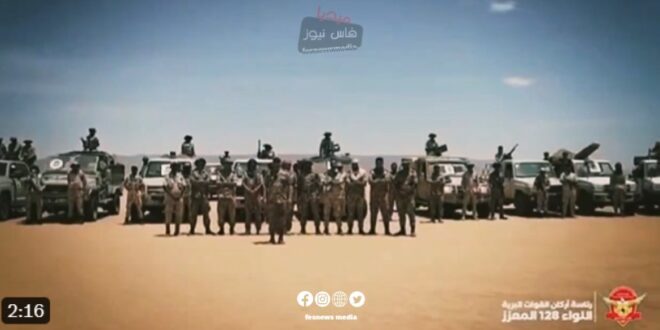The border regions between Algeria and Libya have been witnessing increasing tension recently, amid unprecedented military movements in southern Libya. These developments have raised concerns among Algerian authorities, who are already facing security challenges on their border with Mali.
According to informed sources, southern Libya is witnessing a large military buildup between forces of the Government of National Unity in Tripoli and forces of retired General Khalifa Haftar. Algeria has clearly expressed its concern about these developments, summoning the Libyan ambassador and warning of “the seriousness of the situation and its implications for the neighborhood,” calling on all parties to stop military escalation.
This tension comes at a sensitive time for Algeria, which is preparing for presidential elections in September. Algerian authorities fear that these military movements could lead to a new regional reality in the border area, which may have security and political implications for Algeria and other neighboring countries.
Analysts view these developments as putting Algeria in a difficult position, as it faces increasing security challenges on its southern and eastern borders at a time when it is preoccupied with preparing for the presidential elections. All eyes remain on how Algeria will deal with these growing security challenges in the region.
The article highlights the complex regional dynamics in North Africa, particularly the interplay between internal political processes and external security threats. It underscores the potential for localized conflicts to have wider regional implications, especially in areas with porous borders and ongoing political instability.
 فاس نيوز ميديا جريدة الكترونية جهوية تعنى بشؤون و أخبار جهة فاس مكناس – متجددة على مدار الساعة
فاس نيوز ميديا جريدة الكترونية جهوية تعنى بشؤون و أخبار جهة فاس مكناس – متجددة على مدار الساعة


 بقيادة المشير
بقيادة المشير  كما تظهره صور دوريات "اللواء 128 المعزز" وتؤكده كل المعلومات الواردة من المنطقة ويظهر جاهزية عملياتية وقدرة تنظيمية تؤكد موثوقية تحالافاته مع روسيا
كما تظهره صور دوريات "اللواء 128 المعزز" وتؤكده كل المعلومات الواردة من المنطقة ويظهر جاهزية عملياتية وقدرة تنظيمية تؤكد موثوقية تحالافاته مع روسيا  ودولة
ودولة  على عكس النظام الجزائري…
على عكس النظام الجزائري… 










